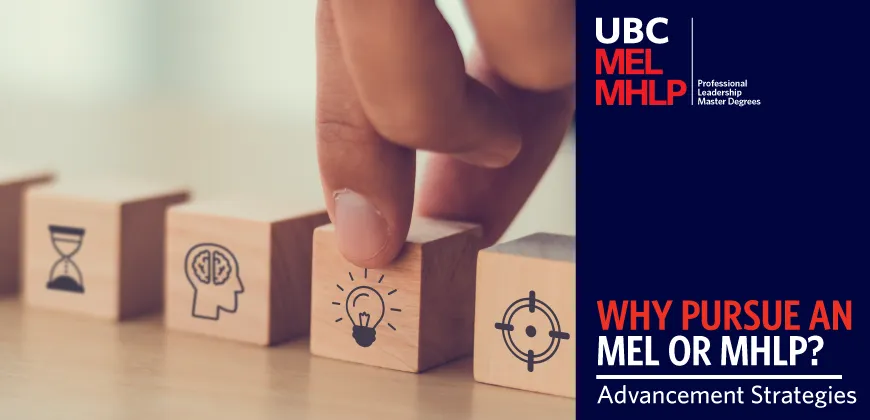Career advancement strategies: One-off courses or a graduate degree?

A commitment to lifelong learning is essential for any professional. That's why so many professional regulatory bodies – such as those for engineers and health-care providers – require that their members engage in ongoing learning to keep their skills and knowledge up to date. Individuals who want to stay competitive in their industries also recognize the value of enhancing their skills. Whether it’s learning a new programming language or taking a class in effective business communication, adding new tools to your professional toolbox is simply a good thing to do. It’s what enables you to remain current and make meaningful contributions to your organization.
The question is, if you want to advance in your career, which is the better choice? Enrolling in individual professional development classes or pursuing a graduate degree?
How you answer this question will depend on your individual context and your career aspirations. There are many important differences between short-term training courses and a professional master’s degree. One of the key differences has to do with intent.
The UBC Master of Engineering Leadership (MEL) and Master of Health Leadership & Policy (MHLP) programs were designed to give professionals the integrated technical and business knowledge they need to excel in their fields and take on positions of leadership and increased responsibility.
On a practical level, this means that each program was developed by experts from the Faculty of Applied Science in partnership with leading industry professionals. Each specialization equips students with the technical, business and leadership skills they need to advance their careers and make a difference – both within organizations and in society at large. The technical classes in each specialization offer an integrated perspective on an industry sector, with knowledge gained in one class applied immediately in a course offered the following term. This cumulative nature of graduate study and continuity of focus provides an immersive and comprehensive learning experience that a series of individual courses cannot. Students also learn to use specific tools, as they would if they took a one-off course, such as learning how to use and apply building energy modelling software or reviewing strategies for evidence-based research practice. Yet in addition to gaining knowledge of how to do something, the value of a graduate degree is in stepping back to understand the why. This shift in approach is fundamental, giving students the perspective they’ll need as future leaders to successfully develop strategy, implement policy and guide teams and projects.
Another advantage of choosing a graduate program rather than multiple professional development courses is the benefit that comes from being immersed for a defined period of time in your field of study.
There’s value in stepping aside from your current context and obligations to focus on your own personal, academic and professional growth. Of course, the best educational experiences are about more than learning new ideas and skills. They’re also about the personal and professional connections you make with your classmates and instructors. The MEL and MHLP are active learning environments that require collaborative group work with your fellow students – not just within your own specialization, but from all the specializations of the MEL and MHLP. Alumni tell us these personal connections are often a highlight of the program. One-off courses are a fantastic way to gain essential skills. Yet for emerging leaders who want to advance within their professions, it is worth considering the advantages of a holistically designed professional master’s degree offered at one of the world’s top universities.
As an MEL or MHLP student, you will deepen your technical knowledge, develop fundamental business and leadership skills, and expand your network as you study with motivated peers and learn from leading experts in your field.
You won’t just gain one or two new tools – you’ll graduate with a fully equipped toolbox.





